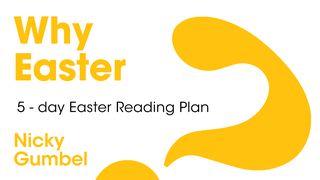30 Days in the PsalmsSýnishorn

Day #7: Psalms 42–43
Book II of the Psalms begins with a pair of prayers that are bound together by their common refrain. The worshiper begins his prayer from a place of longing: “As the deer pants for streams of water, so my soul pants for you, my God. My soul thirsts for God, for the living God. When can I go and meet with God?” (42:1–2, NIV). But he is quickly distracted from that God-focused seeking by the me-centered pressure of his current circumstances. So, three times he pulls himself up short, interrupting his reflection with some corrective self-talk. He addresses himself with a reminder that no matter what his circumstances, prayer and praise are the right choice: “Why, my soul, are you downcast? Why so disturbed within me? Put your hope in God, for I will yet praise him, my Savior and my God” (42:5, 11; 43:5).
What are the circumstances and experiences that are distracting the psalmist from praise and worship? It seems that he has been experiencing a crisis of faith, prompted by the loss of intimacy with God and the apparent loss of God’s favor. He used to lead others in worship (42:4); now his public platform is gone, and his enemies are shaming him for his change in circumstances. “Where is your God now?” They taunt him (42:3, 10). The psalmist is fighting despair—perhaps depression—and we hear the sound of his constant despondency: “My tears have been my food day and night” (42:3). He cries out to God, “Why must I wander around in grief, with my enemies’ words pounding against me like bone-crushing blows?” (42:9–10). Whatever has happened to him, it has been very public and has fueled public criticism, judgment, and hostility from “deceitful and unjust” adversaries (43:1), who scoff at him for putting his trust in a God who has seemingly abandoned him.
The psalmist knows that these adversaries are speaking lies, and the prayer in Psalms 42 and 43 is a fierce fight to keep those untruths from taking up residence in his mind and heart. He fights the battle on three fronts. First, he stays in the conversation—he keeps talking to God, no matter how silent or distant God seems. Second, he chooses hope over despair because hope is rooted in the proven character of the God who is his help and defender. Third, he leaves the enemies in God’s hands, trusting that God will carry out justice. The adversaries will be dealt with by God (not by human vengeance), and the psalmist will be led out of dark oppression into light and truth (43:1–3).
Today is a great day to stay in the conversation with God, even if you’re in a season when he seems distant from you. Hope in God, for you shall again praise him, your help and your God!
About this Plan

Most of Scripture is God’s Word to human beings, but the Book of Psalms records human speech to God. These prayers and songs demonstrate the determination of people of faith to remain connected to God, regardless of their circumstances. Confession, lament, pleading, thanksgiving, praise—all the elements of our communication with God are present. The 150 Psalms in the collection are divided into 5 “books.” During these 30 days, we’ll pray through 6 psalms from each book. Some will be very familiar, others perhaps less so; all will direct our gaze to the God who loves us.
More








